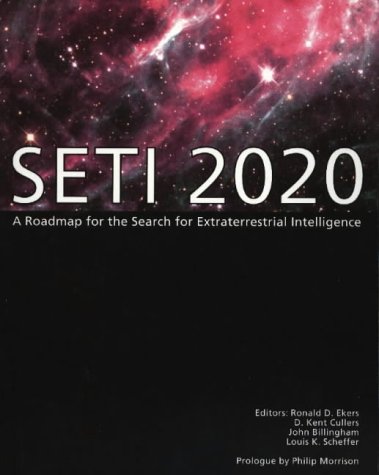If you are interested in how researchers plan to search the heavens for signs of intelligent life, you should have this book. SETI 2020 is a new, and remarkably comprehensive study of how scientists busy with the Search for Extraterrestrial Intelligence (SETI) should direct their efforts between now and the year 2020. Distilling the work of dozens of top SETI experts, astronomers, and technology mavens, this book gives an overview of the problem of finding evidence for extraterrestrial technologies, and how to best address it. New radio telescopes consisting of large arrays of relatively small antennas are proposed and detailed. So are new types of antennas that can survey the entire sky at once. Of particular interest is the extensive treatment of optical SETI - the search for signals beamed our way using high-powered, pulsed lasers or their equivalent. A book that's interesting for both the layman and the technically sophisticated, SETI 2020 is the definitive publication in this fascinating field.
The point of view of the SETI project, of course, differs from Webb's. For more than 50 years, SETI researchers have been inspired by the following reasoning: "In a cosmos filled with billions of galaxies containing trillions of stars, is it possible that Earth, a world of inconsequential size and ordinary position, is alone in housing life that can discern the natural order? It is deeply incongruous to suppose that our enormous Universe is only sparsely occupied. To do so requires the belief that humans are exceedingly special. In view of astronomy's history, such a view is clearly suspect." This book reviews the history of the search and lays out a plan for SETI's next 18 years. The book presents sober science that holds out an awesome prospect should the search succeed: "We would come to view ourselves and our place in the Universe in a very different light. The changes would be as profound as those resulting from the revolutionary discoveries of Galileo and Darwin, which changed our understanding of our place in the solar system and of our biological evolutionary heritage."
Editors of Scientific American
![]()
